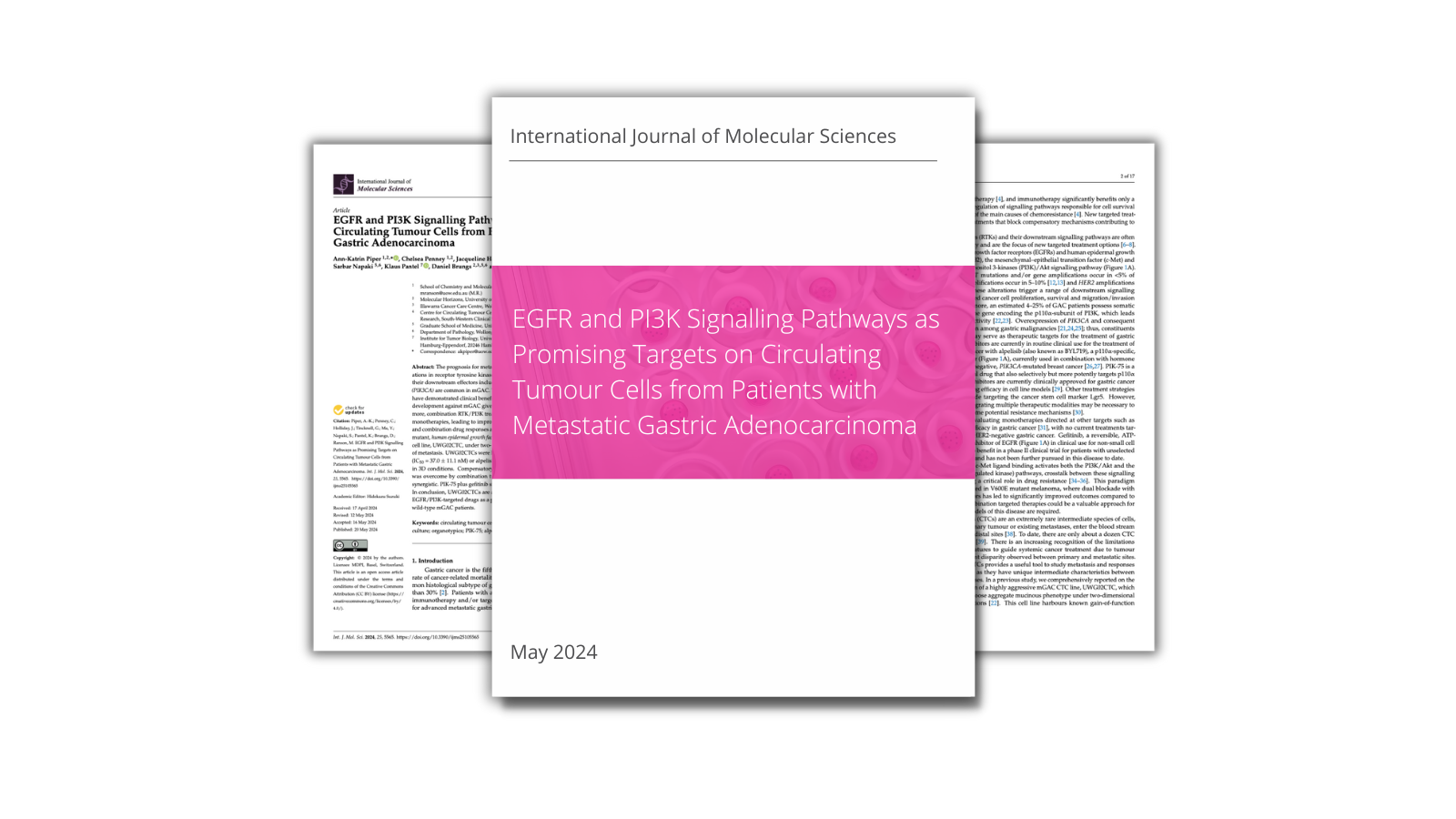
EGFR and PI3K Signalling Pathways as Promising Targets on CTCs from Patients with Metastatic Gastric Adenocarcinoma
Abstract
The prognosis for metastatic gastric adenocarcinoma (mGAC) remains poor. Gene alterations in receptor tyrosine kinases (RTKs) such as epidermal growth factor receptor (EGFR) and their downstream effectors including catalytic subunit alpha of the phosphatidylinositol 3-kinase (PIK3CA) are common in mGAC. Targeted RTK and phosphatidylinositol-3-kinase (PI3K) treatments have demonstrated clinical benefits in other solid tumours and are key potential targets for clinical development against mGAC given the presence of recurrent alterations in these pathways. Furthermore, combination RTK/PI3K treatments may overcome compensatory mechanisms that arise using monotherapies, leading to improved patient outcomes. Herein, we investigated RTK/PI3K single and combination drug responses against our unique human mGAC-derived PIK3CA gain-of-function mutant, human epidermal growth factor receptor 2 (HER2)-negative, EGFR-expressing circulating tumour cell line, UWG02CTC, under two- and three-dimensional culture conditions to model different stages of metastasis. UWG02CTCs were highly responsive to the PI3K p110α-subunit targeted drugs PIK-75 (IC50 = 37.0 ± 11.1 nM) or alpelisib (7.05 ± 3.7 µM). Drug sensitivities were significantly increased in 3D conditions. Compensatory MAPK/ERK pathway upregulation by PI3K/Akt suppression was overcome by combination treatment with the EGFR inhibitor gefitinib, which was strongly synergistic. PIK-75 plus gefitinib significantly impaired UWG02CTC invasion in an organotypic assay. In conclusion, UWG02CTCs are a powerful ex vivo mGAC drug responsiveness model revealing EGFR/PI3K-targeted drugs as a promising combination treatment option for HER2-negative, RAS wild-type mGAC patients.